Bahamas History
Documented Bahamian history begins with the words, "Baja Mar," the name the Spanish bestowed on the islands. This term is misleading, however; it means "shallow sea," but the islands are really mountain plateaus that emerged from the Atlantic hundreds of thousands of years ago. As they grew, they hosted countless generations of coral, which today comprise the islands' limestone base.The "Lukku-cairi" or island people, as they called themselves, were the first settlers. Originally from South America, they meandered up through the Caribbean and finally arrived in The Bahamas around the Ninth Century AD.
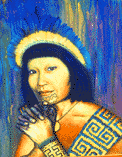
Known as Arawaks, they are also called "Lucayans" and "Indians"- a label bestowed by Columbus, who mistakenly thought he found the East Indies when he dropped anchor in San Salvador in 1492.
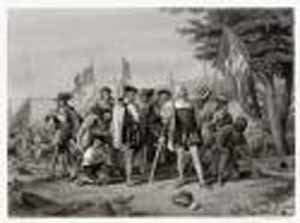
Christopher Columbus, a mercenary funded by Spain, virtually wiped out most of the Indian population of every Bahamian island with which he came into contact. He either killed them, or sold them to slavery.
The next phase of Bahamian history involves the Eleutheran Adventurers, English settlers who left Bermuda in 1647 searching for religious freedom. led by William Sayle. They formed the first British colony on the Island of Eleuthera and began a prosperous agricultural economy that still thrives today.
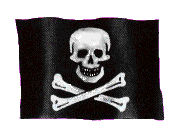
The geography of the islands attracted many well-known pirates, such as the infamous Blackbeard, Henry Morgan and Anne Bonney,

who dominated the islands for the next 70 Years in what was known as "The Golden Age of Piracy". The Bahamas were a perfect hideout for the pirates, and was the haunt for such pirate rogues as:
2) Benjamin Hornigold
3) Major Stede Bonnet
4) "Calico" Jack Rackham
5) Mary Reed
6) Anne Bonny
Their chief occupation was luring unsuspecting ships into the treacherous, shallow waters, then pouncing on and plundering them like insects trapped in a spider's web. Britain, which claimed islands in 1670, remained powerless against their predations for almost 50 years, until the first governor, Woodes Rogers, drove them out in 1718. Britain then recognized the Bahamas as a colony. Rogers, a former pirate, promptly hung eight pirates, and coined the term,: "Expolsis, piratis, restitua commercia" (Piracy expelled, commerce restored).
Privateering, a government-sanctioned form of piracy practiced during Britain's war with Spain and the American Revolution, brought periods of prosperity to the islands. Spain entered the fray on the side of the Americans and briefly retook The Bahamas in May 1782. A year later, under the Treaty of Versailles, it once again became a British colony.
Following Britain's defeat in the American Revolutionary War, southern loyalists brought their slaves to the islands and grew cotton under the Crown's protection. Troubled times in neighboring America often meant prosperity for The Bahamas. In 1861, during the American Civil War years, the Union Navy blockaded the islands in an attempt to cripple the Confederacy, and Bahamians grew rich running Confederate cotton to English mills and sending military equipment to Confederate rebels.
Hard times followed the end of the Civil War until Prohibition and the "Roaring Twenties" transformed The Bahamas into a base for rum-running.
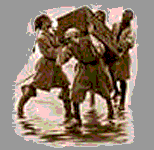

But after Prohibition was repealed, the islands again lapsed into economic stagnation. Prosperity did not return until World War II, when the Bahamas served as an air and sea way-station in the Atlantic. Shortly after, the new industry of tourism changed the priorities in the islands. For the first time, the beauty and life of the islands were recognized as an asset. When Cuba was closed to US tourists in the 1950's, The Bahamas forged ahead to become one of the world's most popular tourist destinations.
Great Britain granted the islands self-government in 1964 and changed their status from colony to Commonwealth in 1969. In 1973, the Commonwealth of The Bahamas became independent within the Commonwealth of Nations, but retained Queen Elizabeth II as constitutional head of state.
In the late 70's and early 80's, The Bahamas became a route through which cocaine travelled from Columbia to Florida, largely through the use of high speed 'Cigarette Boats'.
This drug scourge affected politics, the economy, and the people of the Bahamas, but has largely disappeared due to the combined efforts of the authorities of the Bahamas and the United States.
Today, the Bahamas attracts people after the fast life, in Nassau and Freeport, and people who like the quiet beach life, and diving in the Out Islands.
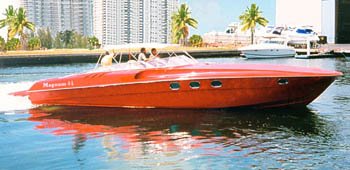
OTHER HIGHLIGHTS: The Bahamas is a renowned tax haven with no corporate, income, capital gains, or estate tax. A stable democracy with more than 250 years of Parliamentary rule, the Bahamas is English-speaking, and the Queen of England is the official Head of State.
Owning Property in the Bahamas

